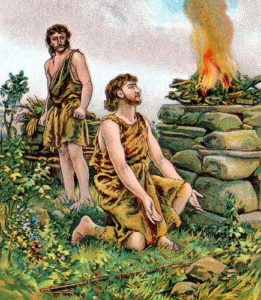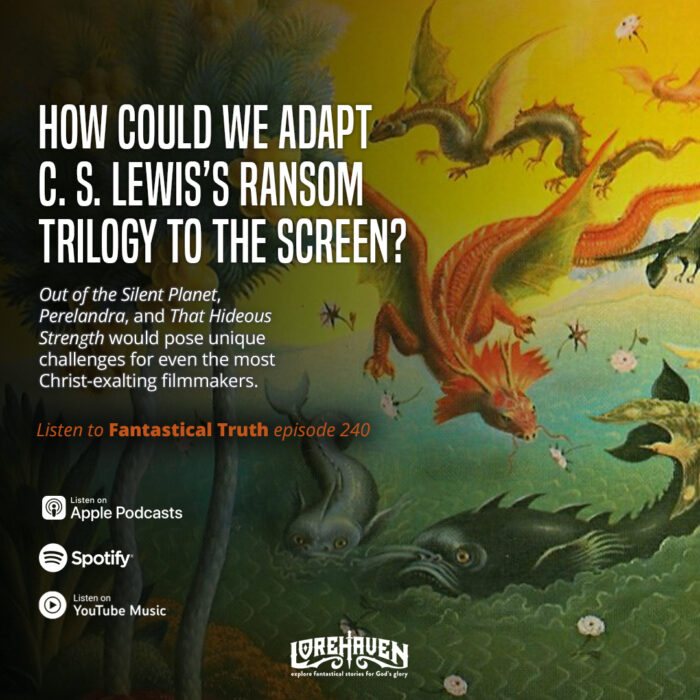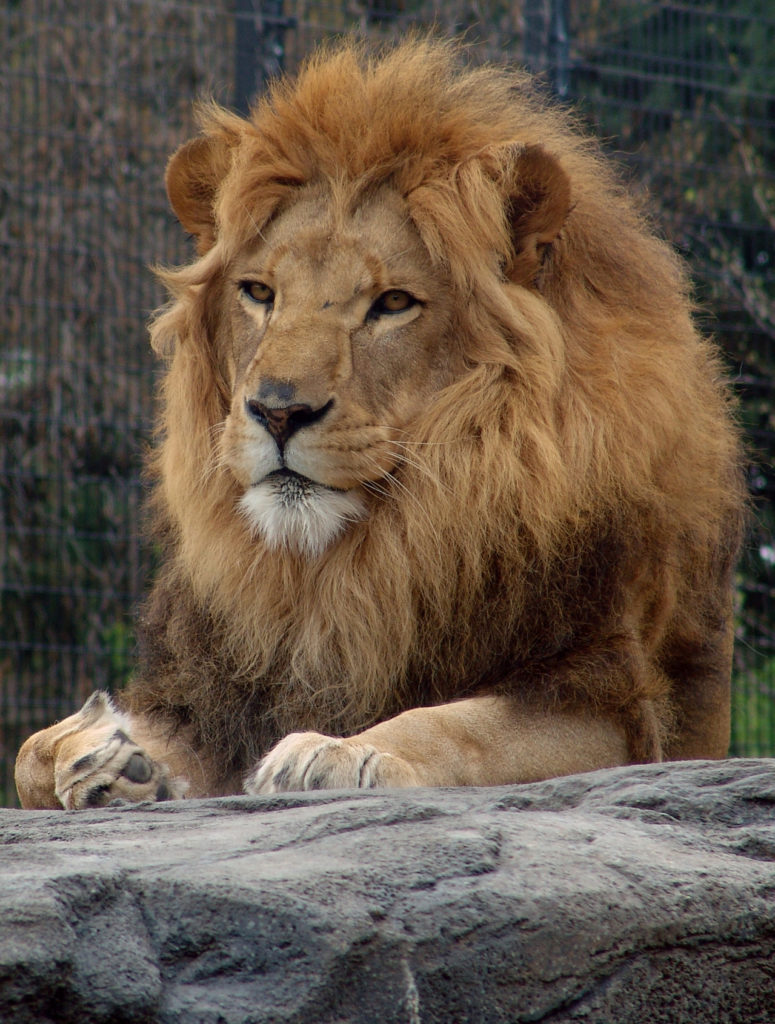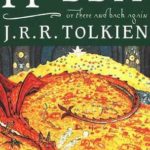Animals And Christian Speculative Fiction
 There’s been much in the news the last few days about a “beloved” lion which was shot and killed by a rich American big game hunter. I have a number of thoughts about this.
There’s been much in the news the last few days about a “beloved” lion which was shot and killed by a rich American big game hunter. I have a number of thoughts about this.
First of all, does naming a lion insulate it from predators? Second, is a lion which is treated in some ways like a pet different from lions in zoos? Third, is the problem really the killing of this one lion or is it all trophy killing? Fourth, how is it that western society (or is it only those of us here in the US?) become so exercised about the death of a lion but not the deaths of countless unborn babies, even when their body parts are being harvested and sold for research? Not so long ago animal rights groups decried research on animals. But research on humans is OK instead?
But Spec Faith is devoted to a discussion of fiction and faith, so rather than camping on the political implications inherent in those questions, I wonder if we can explore the ramifications of the Christian faith on our attitude toward animals and their place in the world—and how an author have integrated that into fiction.
 First, as most people familiar with the Bible know, God gave Adam and Eve jurisdiction—the responsibility to rule the earth and all that is in it—before sin infected creation:
First, as most people familiar with the Bible know, God gave Adam and Eve jurisdiction—the responsibility to rule the earth and all that is in it—before sin infected creation:
God blessed [Adam and Eve]; and God said to them, “Be fruitful and multiply, and fill the earth, and subdue it; and rule over the fish of the sea and over the birds of the sky and over every living thing that moves on the earth.” (Gen. 1:28)
Apparently both man and animals were vegetarian at that time, but after the flood the situation changed, as did an apparent companionableness between humans and animals. Before the flood, Noah had no problem rounding up the animals to take on the ark. For a year, they accepting their food from his hand. When he wanted to know if the earth was drying up, he sent out various birds.
But after the flood, that harmony was forever changed.
The fear of you and the terror of you will be on every beast of the earth and on every bird of the sky; with everything that creeps on the ground, and all the fish of the sea, into your hand they are given. Every moving thing that is alive shall be food for you; I give all to you, as I gave the green plant. (Gen. 9:2-3)
This alienation, of course, does not mean that man couldn’t tame animals or control them. Job had flocks and herds and camels, as did Abraham and his descendants. The unfaithful prophet Balaam had a donkey. King David had horses he used to pull his chariots.
Clearly humankind was in charge of animals.
Balaam and his donkey show another aspect of animal involvement with humans and what God expects from the men and women He created to rule. Balaam, who’d been hired to curse God’s people, set out to fulfill his assignment, but the angel of the Lord sought to strike him down. The donkey Balaam rode, however, veered away from the angel (an interesting sidelight because the donkey had a spiritual awareness the man didn’t have—was this an anomaly?) In response, Balaam beat his donkey to get him moving forward again.
After the third such occurrence, the Lord opened the mouth of the donkey, ad his first statement was, Why have you beaten me these three times? When Balaam’s eyes were opened and he saw the angel, the first thing the angel said was, Why did you beat your donkey? She saved your life:
The angel of the LORD said to him, “Why have you struck your donkey these three times? Behold, I have come out as an adversary, because your way was contrary to me. But the donkey saw me and turned aside from me these three times. If she had not turned aside from me, I would surely have killed you just now, and let her live.”
Balaam said to the angel of the LORD, “I have sinned, for I did not know that you were standing in the way against me. (Num. 22:32-34a)
What was the sin Balaam was confessing—that he was going when the angel was standing in his way, or that he’d struck his donkey? Or both? Or that perhaps he should have seen what the donkey saw?
Scripture isn’t clear on this point, but it is quite apparent that striking the donkey was wrong.
When God gave Israel the Law, He included specifics about caring for animals. Oxen, for example, were not to be muzzled while they threshed. If someone came upon an animal that fell into a pit, he was supposed to pull him out, even on the Sabbath, and so one.
Jesus mentioned the birds of the air as cared for by the Father. No sparrow falls without God knowing. Of course He added a rhetorical question: Aren’t you worth much more than a sparrow.
Without a doubt, the Bible makes a distinction between humans and animals. It was Man only that God made in His image and into which He breathed the breath of life, which many believe signifies the human soul.
 God ordained sacrifice, including animal sacrifice, after Adam sinned. In fact, God first killed animals in order to clothe Adam and Eve in their skins. As part of the Law, He gave specific rules about sacrifices, including which animals were to be offered and in what quantity. In addition, these clean animals were the ones the Jews were allowed to eat.
God ordained sacrifice, including animal sacrifice, after Adam sinned. In fact, God first killed animals in order to clothe Adam and Eve in their skins. As part of the Law, He gave specific rules about sacrifices, including which animals were to be offered and in what quantity. In addition, these clean animals were the ones the Jews were allowed to eat.
Later in the New Testament, God lifted the restriction on eating the meat of only certain animals. He declared all to be clean, though He never sanctioned human sacrifice and forbade the taking of human life for any purpose, let alone for food.
In short, the Bible is “animal friendly” in that humankind, as rulers, are to be benevolent in the exercise of our authority. But clearly, humans and animals are not equal. This position is one of the ways the Christian worldview differs from the way of secular society. But, I submit, it also differs from the extremist view that respects and promotes trophy killing of animals.
Some Christians are uncomfortable with that last statement, believing that “rule” means “do whatever you want.” Such a position has never been God’s perspective.
So here’s the question. How are animals depicted in Christian speculative fiction? Are they allies of the hero? Obstacles or adversaries? Are they sentient such as the talking animals of Narnia or the dragons of Donita K. Paul’s worlds? If so, how are they different from humans? Are they? Should they be?
What are some of your favorite speculative stories depicting either a Biblical or non-Biblical view of animals? Did the part the animals played affect your attitude toward the story?












































One of my favourite books is The Book of the Dun Cow, by Walter Wanegrin, Jr. This book is entirely populated by animals, a whole farmyard of them, “ruled” over by a rooster, Chanticleer. It is a marvellous story. The animals are perhaps analogous to humans aka Animal Farm but they have a lovely “animal” way of looking at the world, too. It would be a good place to start if someone is looking at how animals can be portrayed in Christian speculative fiction outside of the Narnia idea of talking animals and Aslan.
I think when talking about animals, hunting, etc in fiction, I’d like to see authors talking more about the good and bad parts of each perspective.
Many times, for instance, I see books taking the stance of animals are good/moral, or animals are bad/immoral, and humans will be the opposite of however the story depicts animals. I don’t mind reading some stories with these viewpoints, but I would like to see people do more to acknowledge and discuss the good and bad in animals. Debunking myths like animals always kill for food and showing that prey animals are not as gentle and harmless as they are depicted would be some interestig aspects.
Trophy/recreational hunting would be another thing to discuss in fiction in a more balanced way. It would be cool to see a fantasy book that talks about poaching, but also shows some people who hunt responsibly and why it can be a good thing. Law abiding trophy hunters aren’t nearly always sadistic gun lovers who only care about catching a deer with huge antlers and leaving the carcass to rot. Sometimes animals need to be hunted to help keep numbers to a level that is healthy for everyone, both man and beast. As beings at the top of the food chain, we serve a role much like wolves and other predators do: keep certain animals from becoming so numerous that they run out of food or damage the environment. And the reason humans don’t need such population control (in the form of abortion, etc.) is because we can look at the whole world and choose better methods, like abstinence or non abortive birth control.
There are a lot of other positives for recreational hunting, but that’s one of the more commonly cited ones. I know some people get weirded out at the idea of someone liking to kill an animal and have its head on their wall, but I think we as authors should still do our research and present all aspects of the issue.
But as far as favorite stories with animals in them, I’ve liked a lot of them where there are at least some sentient/talking beasts in the story’s world. It’s fun to see how the world building takes sentient animals into account. I know with my stories I’ve had to consider things like making the floor plans of some buildings more open to accommodate larger animals, for instance. I think Dinotopia has some cool world building aspects like that as well. I recall some illustration of a council room with different types of chairs, some for massive dinosaurs, while other dinos just stood in front of the council table, and the human’s chairs were raised up to the Dino’s level, so the humans had to climb a ladder to get in their chairs.